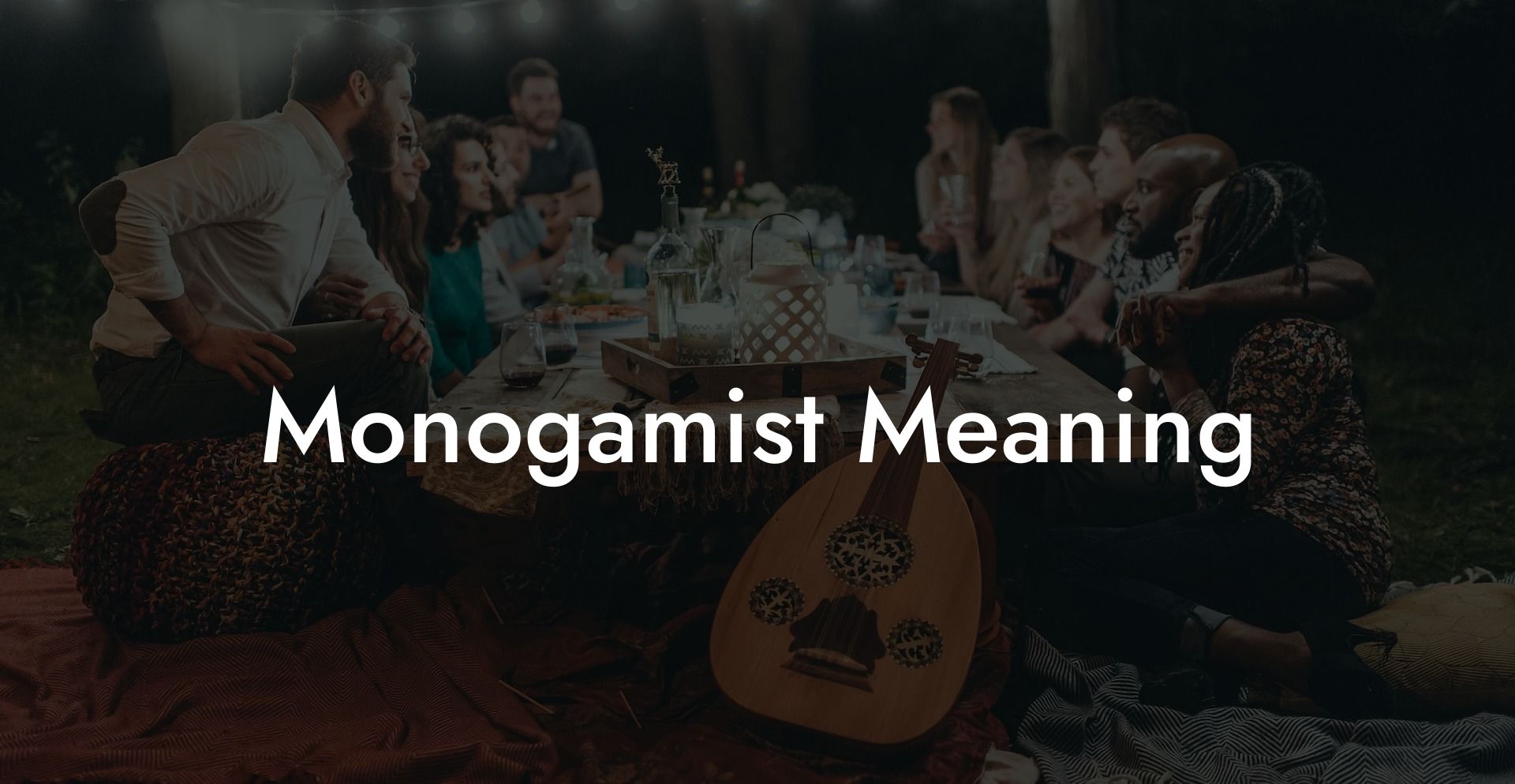In today's modern society, relationships can take on many different forms. From open relationships to polyamory, people's relationship preferences continue to evolve. However, one form of relationship that has remained constant throughout history is monogamy. In this blog post, we will delve into the meaning of monogamist and provide insights into the world of monogamy. We'll also explore some common misconceptions and myths about monogamy and provide some food for thought. Don't forget to share this post with friends and family and explore our other guides at The Monogamy Experiment!
Monogamy is defined as the practice of engaging in romantic or sexual relationships with only one person at a time. A monogamist, therefore, is someone who adheres to this principle in their relationships. While monogamy is often seen as the "norm" or "default" relationship style, it is important to recognize that it is just one of many relationship styles that people can choose.
Some may argue that monogamy is a natural human tendency, pointing to evidence of monogamous relationships in the animal kingdom. However, others argue that monogamy is a social construct designed to maintain specific cultural and economic systems. It is worth noting that both of these perspectives can coexist, as human behavior is influenced by a combination of natural tendencies and social conditioning.
Common Misconceptions about Monogamy
1. Monogamy equals commitment
While monogamy often implies commitment to one person, it is important to recognize that commitment can exist in various forms, and non-monogamous relationships can also demonstrate a high degree of commitment and trust.
2. Monogamy is a guarantee of fidelity
Monogamy is not a foolproof shield against infidelity. Just because someone engages in a monogamous relationship does not mean they are exempt from temptation or the risk of cheating. Communication and trust are crucial in maintaining fidelity within a monogamous relationship.
3. Monogamous relationships are more stable
While monogamous relationships can offer a sense of stability, they can also come with their unique challenges, such as complacency, jealousy, and resentment. A stable relationship, regardless of its structure, is built on solid foundations of open communication, trust, and emotional support.
Monogamist Meaning Example
Consider the story of Julia and Mark, a married couple for ten years who identify as monogamists. They actively communicate about their feelings, providing emotional support and constantly working to strengthen their bond. Though they often receive comments from friends and family about their "boring" lifestyle compared to those in open relationships or polyamorous arrangements, Julia and Mark are content and fulfilled in their monogamous relationship. Their love and commitment to each other remain strong, proving that there are many valid ways to conduct a relationship.
The world of monogamy is rich and complex, with numerous factors to consider when exploring the meaning of monogamist. As you continue your journey, remember that there is no "one size fits all" when it comes to relationships. What is important is open communication, trust, mutual respect, and emotional support – all elements that can be found in any relationship style. So, whether you identify as monogamous or non-monogamous, continue to cultivate healthy and fulfilling relationships, share this post with friends and family, and be sure to explore all the other guides on The Monogamy Experiment!













